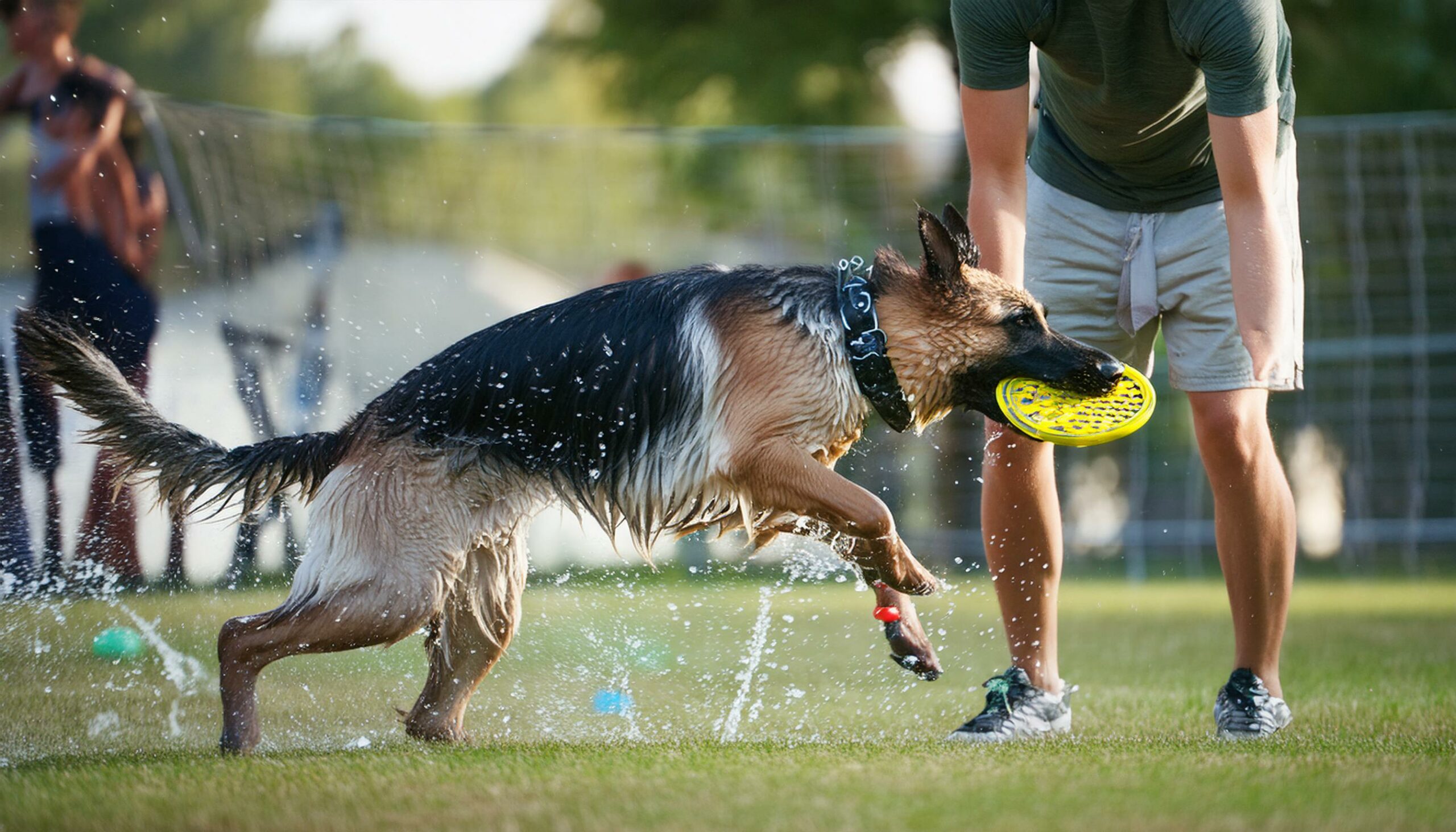German Shepherds are a versatile and intelligent breed known for their loyalty and protective instincts. Originally bred as herding dogs, they are now commonly employed in various roles such as police work, search and rescue missions, and as service animals. Their adaptability and trainability make them excellent companions, but like any breed, German Shepherds can experience behavior issues that require attention and understanding from their owners.
Common Behavior Issues
Aggression
Aggression is a behavior problem that can manifest in German Shepherds, particularly if they are not properly socialized or trained. This aggression may be directed towards other dogs, strangers, or even family members. It can range from growling and barking to more serious behaviors such as lunging or biting.
Separation Anxiety
German Shepherds are known for forming strong bonds with their owners, which can sometimes lead to separation anxiety when left alone. Dogs with separation anxiety may exhibit distressing behaviors such as pacing, panting, excessive drooling, and destructive behavior. This can be a challenging issue to address but is manageable with the right approach.
Excessive Barking
Barking is a natural form of communication for dogs, but excessive barking can become a problem, particularly in urban environments or shared living spaces. German Shepherds may bark excessively due to boredom, anxiety, or territorial behavior. Understanding the underlying cause is key to addressing this issue effectively.
Fearfulness
Some German Shepherds may display fearfulness towards certain stimuli or situations. This can be caused by a lack of socialization during puppyhood, traumatic experiences, or genetic predispositions. Fearful dogs may exhibit avoidance behaviors or aggression if they feel threatened.
Destructive Behavior
German Shepherds are energetic and intelligent dogs that require mental and physical stimulation to prevent boredom and destructive behavior. Without appropriate outlets for their energy, they may engage in behaviors such as chewing, digging, or scratching furniture. Providing ample exercise and enrichment is essential for preventing these issues.
Causes of Behavior Issues
Lack of Socialization
Proper socialization is critical for German Shepherds to develop into well-adjusted adults. Early exposure to a variety of people, animals, and environments helps puppies learn how to navigate the world around them. Dogs that are not adequately socialized may develop fear or aggression towards unfamiliar stimuli.
Genetic Factors
Some behavior issues in German Shepherds may have a genetic component, inherited from their parents. Responsible breeding practices aim to minimize the risk of hereditary behavioral problems, but they can still occur. It’s essential to research the lineage of a puppy’s parents and choose a reputable breeder to reduce the likelihood of inherited issues.
Traumatic Experiences
Traumatic experiences such as abuse, neglect, or a frightening incident can have a lasting impact on a dog’s behavior. German Shepherds are sensitive animals that may develop fear or anxiety in response to traumatic events. Patience, understanding, and positive reinforcement techniques can help them overcome these challenges.
Recognizing Behavior Issues

Signs of Aggression
Recognizing the signs of aggression in German Shepherds is essential for addressing the issue before it escalates. Growling, baring teeth, stiff body language, and snapping are common signs of aggression in dogs. It’s essential to intervene early and seek professional help if necessary to prevent injuries or dangerous situations.
Symptoms of Separation Anxiety
Symptoms of separation anxiety in German Shepherds can vary but may include destructive behavior, excessive vocalization, and physical symptoms such as pacing or drooling. Dogs with separation anxiety may become visibly distressed when their owners prepare to leave or exhibit clingy behavior when they return.
Triggers for Excessive Barking
Identifying the triggers for excessive barking in German Shepherds is the first step towards addressing the issue. Common triggers may include loneliness, boredom, fear, or territorial behavior. Once the underlying cause is identified, owners can take steps to address it through training and environmental management.
Prevention and Training
Early Socialization
Early socialization is crucial for German Shepherds to develop into well-mannered and confident adults. Exposing puppies to a variety of people, animals, sounds, and environments during their critical socialization period (between 3 and 14 weeks of age) helps them learn to feel comfortable and safe in different situations.
Positive Reinforcement Training
Positive reinforcement training techniques, such as clicker training or reward-based methods, are highly effective for teaching German Shepherds desirable behaviors and modifying unwanted ones. Rewarding desired behaviors with treats, praise, or play encourages dogs to repeat those behaviors in the future.
Providing Mental Stimulation
German Shepherds are intelligent and active dogs that require mental stimulation to prevent boredom and destructive behavior. Providing puzzle toys, interactive games, and training sessions engages their minds and prevents them from becoming bored or frustrated. Regular exercise, such as brisk walks or play sessions, is also essential for their physical and mental well-being.
Consistency and Routine
Establishing a consistent daily routine with regular feeding times, exercise, training sessions, and rest periods helps German Shepherds feel secure and reduces anxiety-related behavior issues. Consistency in rules and expectations helps dogs understand what is expected of them and reinforces desired behaviors.
Seeking Professional Help

Consulting a Veterinarian
If you’re concerned about your German Shepherd’s behavior, consulting with a veterinarian is the first step to rule out any underlying medical issues that may be contributing to their behavior problems. Your vet can also provide guidance on behavior management and recommend additional resources or specialists if needed.
Hiring a Professional Trainer
Working with a certified professional dog trainer who specializes in positive reinforcement techniques can help address behavior issues in German Shepherds effectively. They can assess your dog’s behavior, develop a customized training plan, and provide guidance and support throughout the process.
Behavior Modification Techniques
In severe cases of behavior issues, such as aggression or separation anxiety, behavior modification techniques may be necessary. These techniques focus on changing the dog’s emotional response to certain triggers through desensitization, counterconditioning, and other methods. A qualified behaviorist or trainer can help implement these techniques safely and effectively.
Conclusion
Understanding the behavior issues commonly associated with German Shepherds is essential for providing them with the care and support they need to thrive. By recognizing the signs, addressing the underlying causes, and implementing effective training and management strategies, owners can help their German Shepherds become well-behaved and happy companions.
FAQs
Q: How do I deal with my German Shepherd’s aggression?
A: Dealing with aggression in German Shepherds requires patience, consistency, and positive reinforcement training techniques. Seeking guidance from a professional dog trainer is recommended for addressing this issue safely and effectively.
Q: Can separation anxiety in German Shepherds be cured?
A: While separation anxiety in German Shepherds can be challenging to overcome, it can be managed with the right approach. Behavior modification techniques, training, and providing appropriate mental stimulation can help reduce symptoms and improve your dog’s quality of life.
Q: What are some effective training methods for German Shepherds?
A: Positive reinforcement training methods, such as clicker training and reward-based techniques, are highly effective for training German Shepherds. Consistency, patience, and clear communication are key to successful training.
Q: Is it normal for German Shepherds to bark a lot?
A: German Shepherds have a natural tendency to bark as a form of communication. While some barking is normal, excessive barking can indicate underlying issues such as boredom, anxiety, or territorial behavior that may need to be addressed.
Q: When should I seek professional help for my German Shepherd’s behavior issues?
A: If you’re struggling to manage your German Shepherd’s behavior issues on your own or if the issues are causing significant distress or safety concerns, it’s best to seek professional help from a certified dog trainer or behaviorist.
